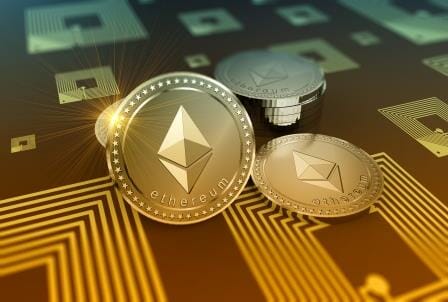The organization launched the so-called MEV program, in beta, as an alternative. 80% of the proceeds will set a distribution along with the rewards for mining blocks.
Ethereum miners are looking for alternatives to counteract the imminent commission burn applied in London’s following network update. The Ethermine pool activated a program, in beta version, to compensate for the decrease in income.
The group announced this Wednesday, March 17, through its Twitter account, testing an MEV software (Maximal Extracted Value or Extractable Maximum Value, in Spanish) to generate commissions from arbitrage opportunities.
Ethermine said that 80% of the income from MEV would set a distribution along with the rewards for block mining. Another 5% will go to grants via Gitcoin and develop strategies to incentivize new incomes in this modality. The group thinks that it could increase mining rewards by 1% and 10%.
Renamed from the Miner Extractable Value (MEV) or extractable value of the miner, it is a measure to study the consensus and model potential benefits that a miner could obtain. According to the Flash Bots research service, this, according to its ability to arbitrarily include, exclude or reorder the transactions of the blocks it produces.
“The term MEV can be misleading since it is possible to assume it as the miners that extract this value. The MEV present in Ethereum today is predominantly at DeFi traders’ hands through structural arbitrage trading strategies.
The agency explained how is the automated mechanism according to which the participants of the network could receive many benefits. The miners indirectly benefit from the commissions for the transactions that these traders execute. An example of these operations would be structural price arbitrage on Uniswap.
In short, miners would use their role as judges in the way blocks go through packages to take advantage of profitable operations, Wikiversus explained on this matter via the website. It is an unexploited way of income that has become very popular with DeFi users who “compete” for fees to operate in the blocks.
It is relevant to mention that Ethermine is the second most crucial mining pool within the Ethereum ecosystem. According to Etherscan figures, the group processes 20% of the blocks that go through a mining process, only behind Spark Pool (23%).
Fewer Commissions And Rejection From Miners
Ethereum miners split on the EIP-1559 improvement proposal that establishes commissions’ burning and allocating a “tip” by operators for their provided services. The miners’ income would receive damage, but theoretically, the transactions would be cheaper.
In October 202, the miners went on the reject the proposal. Through a survey, eight out of nine mining projects consulted negatively evaluated the improvement proposal because it would affect them economically. Ethermine is among those who oppose the upgrade proposal but announced that it would not endorse any fight against the network.
In February this year, the F2pool group offered arguments why fees should go low on Ethereum. For the pool, this step is necessary if it is to achieve greater scalability in the future. They also mentioned the expectations in the market for the smart contract network.
By: Jenson Nuñez











